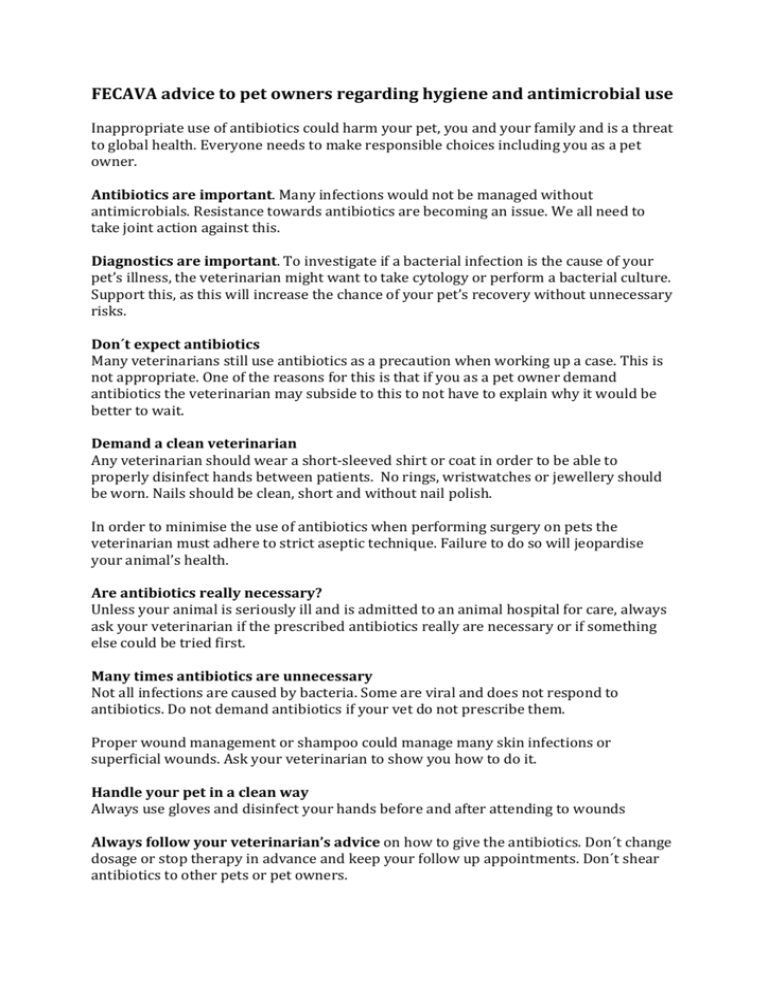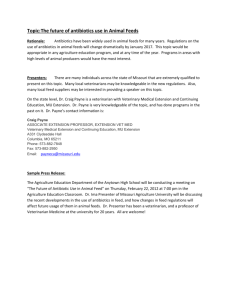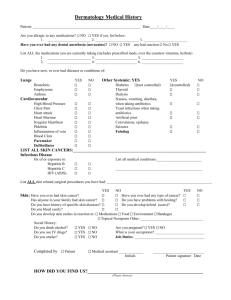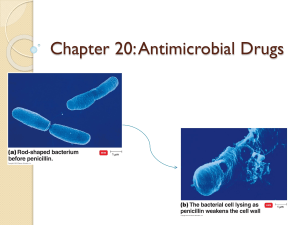Advice-to-pet-owners-regarding-hygiene-and-antimicrobial
advertisement

FECAVA advice to pet owners regarding hygiene and antimicrobial use Inappropriate use of antibiotics could harm your pet, you and your family and is a threat to global health. Everyone needs to make responsible choices including you as a pet owner. Antibiotics are important. Many infections would not be managed without antimicrobials. Resistance towards antibiotics are becoming an issue. We all need to take joint action against this. Diagnostics are important. To investigate if a bacterial infection is the cause of your pet’s illness, the veterinarian might want to take cytology or perform a bacterial culture. Support this, as this will increase the chance of your pet’s recovery without unnecessary risks. Don´t expect antibiotics Many veterinarians still use antibiotics as a precaution when working up a case. This is not appropriate. One of the reasons for this is that if you as a pet owner demand antibiotics the veterinarian may subside to this to not have to explain why it would be better to wait. Demand a clean veterinarian Any veterinarian should wear a short-sleeved shirt or coat in order to be able to properly disinfect hands between patients. No rings, wristwatches or jewellery should be worn. Nails should be clean, short and without nail polish. In order to minimise the use of antibiotics when performing surgery on pets the veterinarian must adhere to strict aseptic technique. Failure to do so will jeopardise your animal’s health. Are antibiotics really necessary? Unless your animal is seriously ill and is admitted to an animal hospital for care, always ask your veterinarian if the prescribed antibiotics really are necessary or if something else could be tried first. Many times antibiotics are unnecessary Not all infections are caused by bacteria. Some are viral and does not respond to antibiotics. Do not demand antibiotics if your vet do not prescribe them. Proper wound management or shampoo could manage many skin infections or superficial wounds. Ask your veterinarian to show you how to do it. Handle your pet in a clean way Always use gloves and disinfect your hands before and after attending to wounds Always follow your veterinarian’s advice on how to give the antibiotics. Don´t change dosage or stop therapy in advance and keep your follow up appointments. Don´t shear antibiotics to other pets or pet owners.







